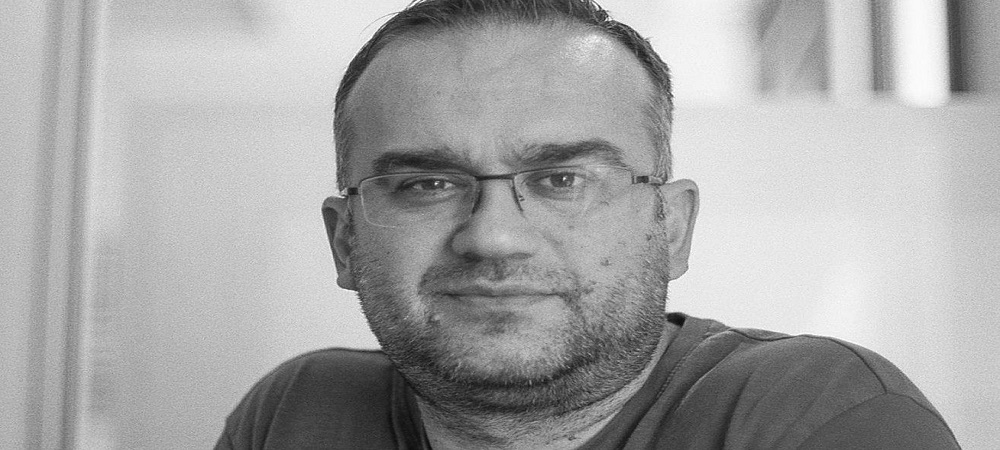What would you describe as your most memorable achievement?
My most memorable achievement has been at Paynetics – helping our business grow from initially serving a few hundred companies to now helping thousands. I was here from the start, so it’s been hugely rewarding to see the team’s efforts flourish into the cutting edge product and successful company you see today. Before the launch of digital wallet platform, phyre, there simply wasn’t an e-wallet solution like ours out there and people couldn’t digitalise company cards. We’ve played a major role in paytech history and I’m proud to be a part of it.
What first made you think of a career in technology?
I’ve always been drawn to the technology space because of the creativity it involves. Okay, you’re not painting a picture or writing a song, but technology allows you to create something that solves problems and serves many people – so it’s creative to me. Every new functionality helps to improve people’s lives and I think that plays a large role in why, from the start of my career in 1999 to this day, I still enjoy my work. Like my entire team, I’m happiest at the forefront of innovation.
What style of management philosophy do you employ with your current position?
Honestly, my management philosophy is that I don’t really manage. We work as a team of equals, regardless of seniority. I still do a few development tasks everyday as part of my job and it helps to build a culture where everyone is able to freely contribute. I’ve replicated what I’ve learned from my own managers and thankfully, it works.
What do you think is the current hot technology talking point?
There are so many to choose from! That’s what’s so great about working in this sector. I think the biggest shift right in now is towards digitalising payment methods, a movement which has of course been accelerated by the pandemic.
While working for Paynetics, I helped to develop FinTech phos’ software point of sale (SoftPOS) technology, the first software solution which turns any Android NFC-enabled device into a point of sale (PoS) terminal. With one downloadable app, this solution enables merchants to accept payments using their mobile devices. This will play a significant part in ensuring the cashless revolution is accessible to everyone. It’s also particularly relevant now that lockdown restrictions are beginning to ease and people will begin paying for goods and services via mobile in stores. Another hot topic is the growing popularity of the application programming interface (API) first approach. This strategy means that before developing any code, we prioritise developing APIs that are consistent and reusable so that our customers can manage all of their online platforms to perform at their best across various devices.
How do you deal with stress and unwind outside the office?
To be honest, I’m probably the wrong person to speak to – I work all the time because I love what I do. If the work made me stressed then I’d do something else but, when I get the chance to, I just relax by listening to music.
If you could go back and change one career decision what would it be?
I’m not sure that I’d want to change anything because I’m happy with where I am now and how I got here. I always want to be doing something where I’m involved in the planning and decision making of a business and working at Paynetics enables me to do exactly that. As a FinTech, we’re involved in building some of the most exciting new products for the market and this remit to innovate comes with a lot of freedom.
What do you currently identify as the major areas of investment in your industry?
The central area companies are investing in right now is automation. There’s been a lot of progress when it comes to automating KYC and KYP processes but it’s a huge task. Currently, no one is able to automate everything. Over the next few years, firms will be pushing to drive operational efficiency and revenue, with a particular focus on accounting processes. We want to bridge this gap in the market to solve company’s payment problems with one solution.
What are the region-specific challenges when implementing new technologies in EMEA?
With so many different types of payments regulation out there, every region has its own challenges. From a technology perspective, we need to create a solution that follows the specific guidelines of each country. We can’t take a ‘one size fits all’ approach. This means our products are tailored to the needs of these different markets and can be customised to create a sophisticated ‘glocal’ solution.
What changes to your job role have you seen in the last year and how do you see these developing in the next 12 months?
At Paynetics, we’re fortunate to have avoided many of the difficulties other companies have experienced during the pandemic, as we are working with digital products. We don’t need to work together in an office to collaborate effectively and COVID-19 has accelerated the demand for our product.
What advice would you offer somebody aspiring to obtain C-level position in your industry?
Everything depends on how you work with your team. If you’re the type of person who wants to be involved in every aspect of product development, then you’ll go really far in the fintech industry. While traditional payment providers and big corporates often depend on hierarchical systems, newer, agile companies enable leaders to play an active role in business operations as well as have a seat at the table when it comes to decision making. In a start-up world, you can have input into everything – even the small details – together with your team.



